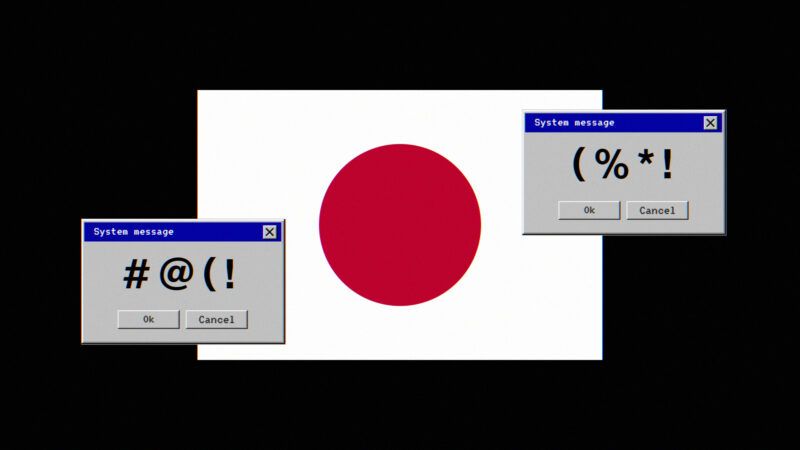New Japanese Law Makes 'Online Insults' a Jailable Offense
Dedication to free speech is in short supply around the world, with Britain and Canada previously considering similar bills.

This week, a Japanese law went into effect making it a jailable offense to be a jerk on the Internet.
As reported by The Japan Times, the legislation, passed in June, strengthens the country's punishment for "online insults." According to CNN, "Under Japan's penal code, insults are defined as publicly demeaning someone's social standing without referring to specific facts about them or a specific action…The crime is different to defamation, defined as publicly demeaning someone while pointing to specific facts."
Previously, the penalty for online offensiveness was either a fine of less than ¥10,000 (about $73 USD) or fewer than 30 days in prison. Under the new law, which went into effect Thursday, the penalties increased to as much as a year in prison and a fine of up to ¥300,000 (about $2,200 USD). It also extended the statute of limitations from one year to three.
A push for the law came in 2020, when Japanese wrestler and reality TV star Hana Kimura committed suicide after allegedly receiving abusive messages on social media. The bill briefly stalled over concerns that it would stifle legitimate criticism of politicians. Finally, the legislature reached a compromise, inserting a provision requiring that "a review will be conducted within three years…to determine if it unfairly restricts free speech," per The Japan Times.
Why wait?
Any criminalization of "offensive" speech is inherently subject to abuse. After all, whoever is in power at a given time will get to decide what's offensive.
Japan's new law is quite broad. It doesn't define what is or is not "demeaning," and since there's no requirement that the statements be statements of fact, it could mean anything. CNN quotes Seiho Cho, a lawyer in Japan, who says that the law lacks "a guideline that makes a distinction on what qualifies as an insult….If someone calls the leader of Japan an idiot, then maybe under the revised law that could be classed as an insult."
Indeed, this is one of the hallmarks of the First Amendment: the right to criticize those in power, even crudely or crassly, without (legal) retribution. As an epithet against President Joe Biden, "let's go, Brandon" may be juvenile, and some may consider it hateful, but it is unquestionably protected speech.
Japan enjoys one of the most free and open societies, with the nonprofit Freedom House rating it 96 out of 100 points in its global freedom ranking, including 15 out of 16 in the Freedom of Expression and Belief category. Such an overt criminalization of unpopular speech represents a worrying trend in the wrong direction.
Around the world, dedication to free speech is in short supply. Last year, Canada and Great Britain considered laws that would ban online rhetoric perceived as hateful or harmful. Even in the U.S., there is a trend lately among younger generations to equate speech with violence.
Speech is not violence, and attempts to regulate it as if it were will only empower the regulators at the expense of the powerless.


Show Comments (73)